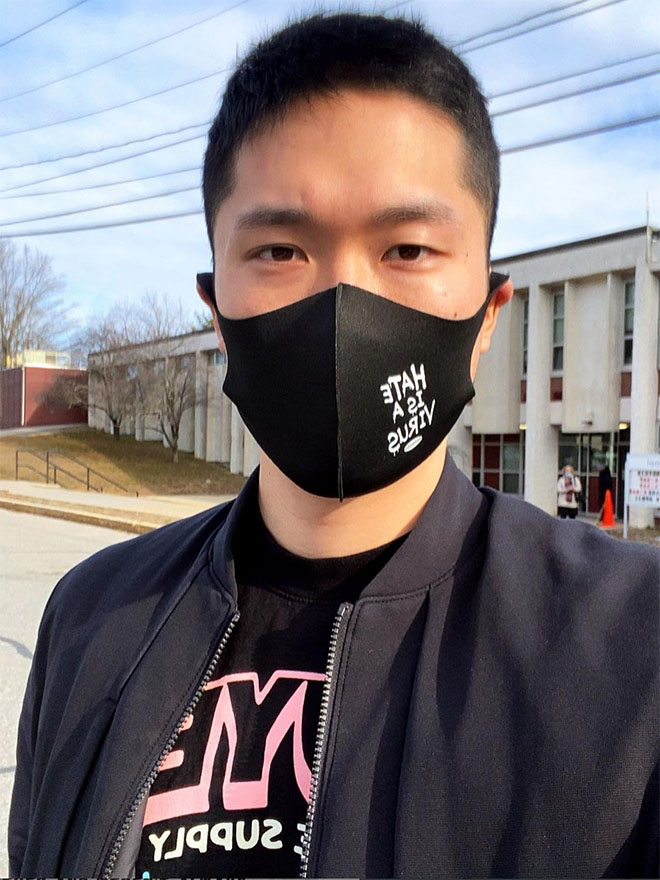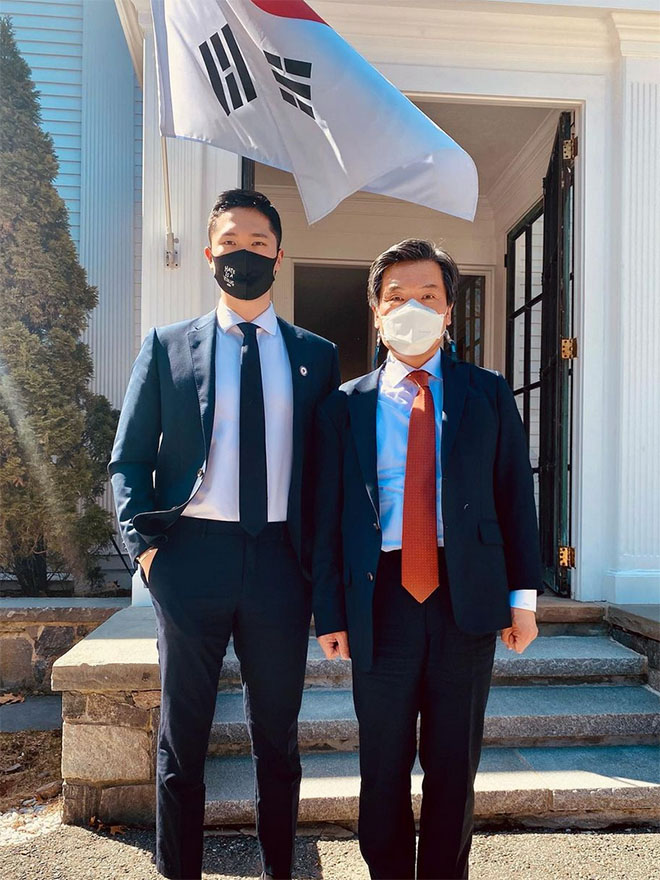
During a year of escalating racism and violence against the Asian American and Pacific Islander (AAPI) community, Sam Hyun, MBA/MPP’22, has been a tireless advocate for AAPIs in Massachusetts and beyond. Hyun is currently chair of the Massachusetts Asian American Commission and a vocal activist in person and on social media through campaigns like #HateIsAVirus, using his role to bring AAPIs together and push for legislation to better define hate crimes and fight discrimination.
What are you focused on right now with the Massachusetts Asian American Commission?
We co-sponsored an AAPI Town Hall on March 25 led by community organizers and organizations. We are trying to get to the table with Massachusetts legislators, speaker of the house, the governor, to get key stakeholders into the community into those conversation with us. We’re making sure we are delivering results that our community needed for a long time, such as the passage of legislation.
State Rep. Tackey Chan has sponsored a bill on data disaggregation, which is important because the Asian American community is not a monolith. Disaggregating data is so critical because of the disparate needs and situations of the different sub-ethnic groups of our community. State Rep. Tram Nguyen has sponsored a bill on hate crimes. We must more clearly define what hate crimes are, because when you speak to prosecutors and law enforcement, they have a hard time defining it.
Read the commission's "Statement Against Violence and Xenophobia Faced by Asian Communities."
What has it been like, taking on the leadership of this state-wide commission during such a challenging time for the community?
It’s been heavy. I’m trying to weigh all the voices within our community and make sure everyone feels seen and safe and valued, while understanding that everyone’s at a different place. How do we make sure we move forward collectively without leaving anybody behind? Navigating that and capturing everybody’s perspectives and feelings is so hard but so necessary if we’re being intentional about including the entire community.
You recently met with the South Korean Consul General. What did you discuss with him?

Given that four of the murder victims in the Atlanta shootings were ethnically Korean, he wanted to understand what is going on here in this country with systemic racism. What can be done? What is being done? I just walked him through the complexities of it. We also discussed how to work together to make sure we are supporting the Korean American community here—it’s very important to the consulate.
Tell me about the #HateIsAVirus campaign.
The #HateIsAVirus campaign came about a year ago as a response to the anti-Asian racism in light of the COVID-19 pandemic. We try to amplify the voices and leadership of community organizers that have been doing anti-racism work for decades, and mobilize the rest of the community to get behind those leaders and those initiatives to make sure that we are maximizing our impact. These organizations are working on mutual aid, violence prevention, intervention and bystander training, and really making sure we’re dealing with all the needs within our community. We actually launched a community action fund with a goal is of raising $1 million for vetted and trusted organizations.
What would you like to say to the Heller community?
I think Heller, to really live up to its name and ethos of being a school predicated on social justice and social impact, needs to fully understand and capture the value of Asian and Asian American students. That includes teaching and training students to understand the nuances and complexities of different communities. As I said before, the Asian American community is not a monolith. When you’re looking at it from a public policy standpoint, if you don’t have the right frame of mind, it’s going to be impossible—if not harmful—to craft policy pertaining AAPIs.
At this moment, I would love for everyone at Heller to really sit and hear the Asian and Asian American members of our community. Often, we are an afterthought. We are an integral part of the fabric of the Heller family and we all deserve better. I truly do believe that Heller is committed to ensuring that all members of the Heller family are valued and loved, and that we will continue to create change at our school and in the world.
